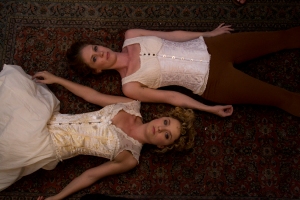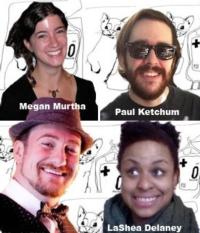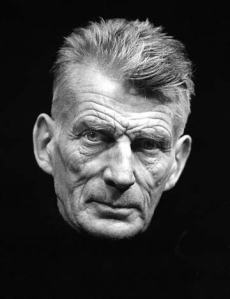mes amis—
it is with great excitement that i look forward to this year’s bring a weasel and a pint of your own blood festival, a mini-celebration of those kooky-yet-loveable brooklyn college playwrights. last year the playlets were inspired by curzio malaparte, everyone’s favorite Italian giornalista who survived fascismo. this year wellman and courtney, who are known for being contrary marys on occasion and inciting debates and dialogue, have assigned a no less thorny theme. i caught up with the three featured playwrights to hear not only about their oeuvre(s) but also to discuss this year’s theme: the American Minstrel show. one thing’s certain: there will be blood!
tell me about your piece.
My piece, The Minstrel Show, is about a white newlywed couple who go on a destination honeymoon weekend to Detroit where they’ve paid $6000 to have a “real black experience”. The play explores minstrelsy as it relates to cultural tourism and the complicated exploitation of race in a media-fueled, capitalist society.
what was your take on minstrelsy? what were the challenges in taking on this theme?
My take on minstrelsy was an exploration of the ways both the consumer and the performer gain—and lose—something for this particular cultural exchange. To this day, black performers play on certain black cultural stereotypes that have been established by white culture for financial or social gain, and it’s a complicated thing because it shows, among other things, a lot of internalized racism amongst black people. It was challenging to take this theme on because it’s painful to look at the part that some black people have played—or had to play—in order to survive and prosper. Initially, it was hard for me to justify black performers performing in blackface for the pleasure of white—and black—audiences. I just didn’t get it. But then I began to see pockets of empowerment, even within this deeply racist and sexist form. I also began to consider the psychological implications of being told who you are and who you’re allowed to be, by someone else, and what that might do to a person.
why does this play at this moment?
I don’t believe that we’re living in a “post racial” society.
me neither, alas.
Also, we’re still trying to figure out our national identity in America. The minstrel show is a very American art form and elements of it persist today as evidenced by Miley Cyrus’ performance at the VMA’s in which she “appropriated” “black culture” in order to shock and entertain. Tyler Perry uses black cultural stereotypes with great financial success. And there are many other examples of minstrelsy today, even without the blackface that generally accompanied it in the past. I think it’s always important to ask questions like: What is Black culture? What is American culture and how does it relate? Who ARE we today in this country? Who do we want to be? What can we take from our American cultural heritage and what can we leave at the door?
such fine questions. Merci Amina for your ruminations!
tell me about your weasel piece.
“Are You Not Entertained?” explores the world of minstrelsy by imagining if a popular competition reality television show called America’s Top Minstrel Group existed. (similar to American Idol or The Voice or well, the list goes on and on)
what was your take on minstrelsy? what were the challenges in taking this theme on?
The challenges I faced were one; how to effectively tackle the historically weighted and emotionally weighted image of a person in blackface makeup and make relevant art from it and two; how to research, explore and internalize this subject matter and not come away so injured that I walk around constantly angry at the world around me. Whether or not I was successful at either still remains to be seen.
pshaw. you are already a success! allora, why does this play matter at this moment?
My first response to that question is Trayvon Martin. My next response is Stop and Frisk. I think of the limited and one dimensional roles for Blacks in theater and hollywood. The next thought after that is the constant debate in the black community; whether or not Tyler Perry’s films and plays are empowering or damaging. Really the question of why the play “matters” is a bit of a rabbit hole for me. Generally speaking I find that we (the collective “we”) seem to believe that societal norms, belief systems, prejudices, and stereotypes just evolved out of thin air. So when we talk about solving some of our societal ills, we discuss them either in a very abstract generalized way or in a very targeted specific way that misses the bigger picture. Everything has an origin and I think it’s important to know and to explore where something came from; that knowledge can provide the tools needed to start the healing process. This play, this year’s festival won’t “matter” to everyone but in this moment it matters to me.
it matters to me too Dennis, keep up the good work!
Kim Davies
tell me about your piece.
My minstrel-inspired piece is called “Miss Authenticity.” It’s a Lena Dunham-esque character experiencing an existential crisis about accusations of racism after the first season of her TV show. Except that she’s played by a forty-something black male actor (the fantastic James Scruggs), and she spends most of the time talking about her twenty-something white girl problems.
what was your take on minstrelsy? what were the challenges in taking this theme on?
One of the challenges in taking on minstrelsy as a theme was that I didn’t have much of a connection with it. I grew up in a predominantly white and Asian suburb of Detroit, Michigan, and I think the only time I saw blackface or minstrel-related imagery was when studying American history or viewing “Bamboozled” in a film studies class. After researching for this project and talking to Dennis A. Allen and Amina Henry about their processes in building their plays, it’s been really surprising to me just how pervasive the minstrel show still is in American culture—there’s so much that’s descended from it.
The playwright Gary Winter lent us a book of academic readings on minstrelsy, and one of the things that stood out to me was the strong tradition of having “female impersonators” perform with a minstrel troupe—the female impersonator would often be the top-billed “star,” but his performance wasn’t necessarily camp or drag as we’d recognize it today. He would perform dramatic monologues or sad songs, and his goal was to give as an “authentically” female performance as possible, showing how, with practice, a man could be better, more perfectly feminine, than any woman. One of the most famous female impersonators billed himself as “The Only Leon” because other female impersonators were pretending to be him so they could benefit from his publicity. He would give interviews in which he discussed the fashion he was wearing, much as Julia Roberts would discuss what designers she wears, and there were news profiles that would report on how “convincingly” female he was. Minstrel shows operated to push various ethnic groups into rigid stereotypical boxes, constricting their agency—but even though the stereotype designed for women was about “positive” qualities like purity, gentility, and “authentic” emotion, it was also a constricting box.
At the time that I was doing this reading, I was also revisiting “Soul on Ice” by Eldridge Cleaver, a book that was tremendously important to me when I first read it in high school, and I was also thinking about the bonfire of internet criticism that had descended on Lena Dunham after the first season of “Girls” came out and featured almost no non-white characters. The way this criticism functioned was really interesting to me; to me it makes more sense to ask why HBO is choosing not to greenlight more shows written by showrunners and writers of color. I’m not sure what it gains to criticize an apolitical show that operates more like a younger, modern Seinfeld—I mean, all the characters are terrible people. I think it’s a great show, but it’s very much in the tradition of shows with unlikeable (but lovable!) ensemble casts, and I don’t know that anyone is going around asking why there aren’t more people of color in “It’s Always Sunny in Philadelphia” (which is such a great show).
I think I experienced the whole process as another example of how white people tend to co-opt conversations about race so that they occur in a framework that still upholds the white-dominated system everyone’s supposed to be critiquing. I mean, I’d rather see a show from a non-white, non-upper class perspective than see a show in which people of color have to act out the words and actions written for them by a super-privileged white writer. A lot of the time, it seems like all the complex structures of oppression and restriction that people are experiencing get boxed into a single issue of representation, as if all our problems would be solved if there were just more people of color on television doing the things that white showrunners decide they will do, or if there were more people of color in theater doing the things that white artistic directors or directors or writers have decided they will do. And often it feels like these conversations become more about making liberal white people feel better about being liberal white people and less about actual change.
So—this is getting terribly long-winded, sorry!
indeed! carry on.
I was very much thinking about that, and about how Eldridge Cleaver engages with the cultural idea of white woman as this ideal of beauty and femininity, and how Lena Dunham’s character struggles with this idea/goal of “authenticity” on “Girls.” And I’d just had a year in which I’d seen a lot of theater that engaged with race, especially stuff like “Clybourne Park” on Broadway. And it felt like I was seeing stuff that, while it was great on some levels, was essentially functioning to show privileged, liberal white audiences depictions of less liberal white characters so that the audiences could pat themselves on the back and say to themselves, “At least I am not like that annoying white person up there,” so that they could feel enlightened for going to the theater in the first place. And as a white person, you come into these conversations with so much privilege that it is really hard to not make a conversation about race function, at least on some level, to demonstrate what a good liberal white person you are—I definitely felt that way when writing “Miss Authenticity”—but I don’t think that means that we get to stop trying to get out of the way of what really needs to be said.
why this play now?
I think this play matters at this moment because of what I mentioned earlier, this sort of “Operation Margarine” (yeah, Roland Barthes!)…
he and I had a brief love affair you know…

…process that is happening in the theater and the larger culture in which people of privilege get the opportunity for a little self-criticism in order to inoculate themselves from asking the big, scary questions of themselves. Because the biggest part of privilege is getting to build your identity on qualities, like “I am a good person,” or “I am a liberal person,” or “I am not a racist person,” and getting to identify with those qualities rather than identifying with the actions that correspond to them.
how d’do! i am much looking forward to this year’s weasel festival.
Bring a Weasel and a Pint of Your Own Blood Festival will take place Thurs-Sunday (Sept. 5-8) at Classic Stage Company. Ecco biglietti!
a bientot!
kippy







